Special session possible on relief fund spending

Alabama lawmakers say there may be a special session on how to spend the state’s remaining pandemic relief funds. Key lawmakers said there are discussions with the governor’s office on calling a special session in which lawmakers would focus only on the relief money allocation during a portion of the upcoming regular session that begins Tuesday. A spokesperson for Gov. Kay Ivey said the governor “wants this to be an early priority for the Legislature.” “She has stressed time and again that we need to invest this one-time money, not just casually spend it. Governor Ivey will continue having conversations with the Legislature, who is ultimately tasked with allocating these funds. The sooner these dollars reach the people of our state, the better,” Gina Maiola said via text message. Congress allocated $2.12 billion for Alabama through the American Rescue Plan. The state received the first half in June and has $580 million remaining after steering $80 million to hospitals and nursing homes and $400 million on a controversial prison construction plan. The state will receive a second $1.060 billion in May or June of this coming year. The state also has $191 million allocated through the America Rescue Plan’s Capital Projects Fund. State House Ways and Means General Fund Chairman Steve Clouse, R-Ozark, has said he expects lawmakers will allocate the $580 million this session and leave decisions on the $1 billion — which the state won’t receive until after the session is concluded — until a later time. Clouse said he supported the idea of a special session to isolate the issue and to get money flowing for infrastructure projects. “We need to go ahead and get the money in the pipeline because it’s going to be hard to get these projects completed in a timely manner over the next few years,” Clouse said. House Minority Leader Anthony Daniels said he also supports the idea. “It probably should be isolated by itself, so we are only focused on that. I can see the point for having a special within the regular session to isolate how, and what, to spend those COVID dollars on,” Daniels, D-Huntsville, said. Republished with the permission of the Associated Press.
Todd Stacy’s inaugural Capitol Journal show to air January 7
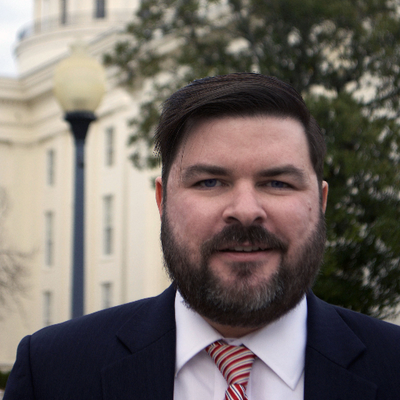
Alabama Public Television’s public affairs series CAPITOL JOURNAL will begin the new year with its new host, Todd Stacy. Stacy, a Montgomery resident and publisher of Alabama Daily News, is taking over the reins on January 7 after previous host Don Dailey retired in December after 10 years in the anchor’s chair. Stacy will join veteran reporters Karen Goldsmith and Randy Scott as the Alabama Legislature begins its 2022 regular session. “I’m grateful to the Alabama Public Television leadership for their confidence in me to host such a meaningful news space in Alabama politics,” Stacy said. “I grew up watching APT and have enjoyed working with their team professionally over the years. It’s more than a little intimidating to fill the shoes of Don Dailey, who is a mainstay at the State House and universally well respected, but I’m honored by the opportunity and eager to get started.” Stacy is a veteran of both Washington, D.C. and Montgomery politics. He previously worked for former Gov. Bob Riley and former U.S. Rep. Martha Roby. He launched Alabama Daily News in January 2018 and will continue as publisher. Phil Hutcheson, interim executive director and CFO of Alabama Public Television stated, “We are excited to welcome Todd Stacy to the team. Viewers can rely on CAPITOL JOURNAL for straight-forward and balanced coverage of news from Montgomery and around the state and the most in-depth television coverage of the Legislature available.” Guests for this Friday’s show include Senate President Pro Tem Greg Reed, House Minority Leader Anthony Daniels, Finance Director Bill Poole, and State Health Officer Dr. Scott Harris.
Kay Ivey and Condoleezza Rice release Alabama Innovation Commission recommendations to boost innovation, entrepreneurship
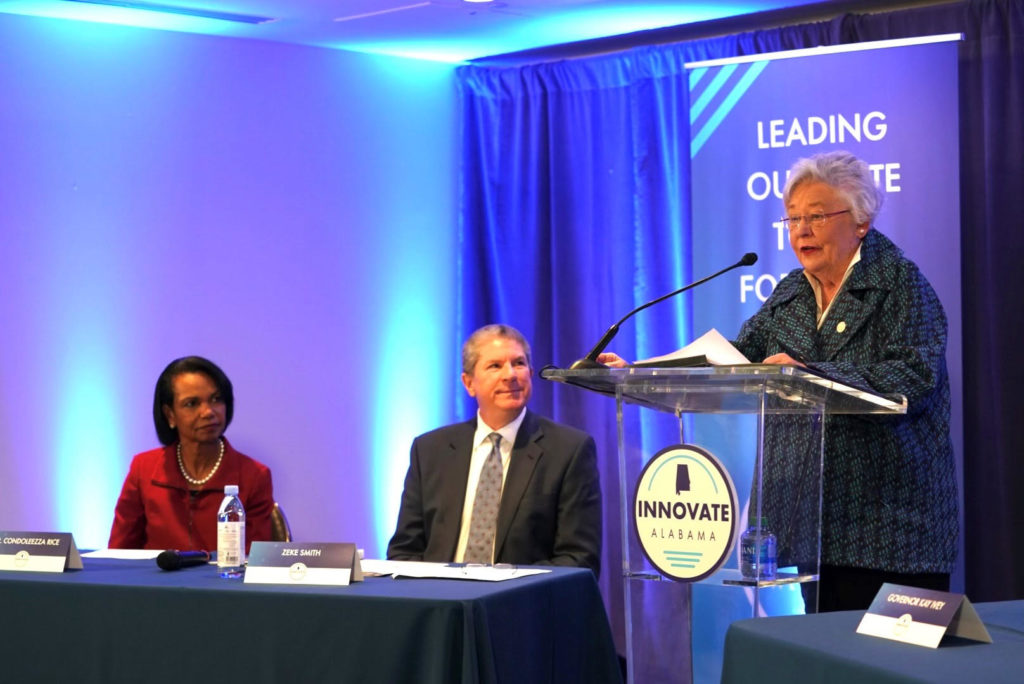
Governor Kay Ivey and Condoleezza Rice, 66th U.S. secretary of state and director of the Hoover Institution, joined state leaders on Tuesday to share the Alabama Innovation Commission’s policy recommendations and announce the Alabama Innovation Corporation board of directors. Governor Ivey established the commission and its advisory council in July 2020. “The Alabama Innovation Commission has done incredible work, and I’m excited to see how we as a state can implement smart policies that will foster innovation and develop a talented workforce for the future,” stated Governor Ivey. “I’m inspired by the promising growth for Alabama’s economy, and I look forward to working with the Alabama Legislature and the Alabama Innovation Corporation to help Alabama reach new heights.” Alabama Innovation Commission (Innovate Alabama) is the state’s first commission focused on entrepreneurship, technology, and innovation. The commission brings together private-sector experts and policymakers to develop forward-thinking policies that work to create a strong economy to help Alabama remain competitive in the 21st century. Ivey commented on Twitter, “Alabama. Where you can dream big, play hard, and live comfortably. We’re building a better state – a place where equitable opportunity exists. Now, we have a playbook to take us there.” The commission, led by Alabama Finance Director Bill Poole and state Sen. Greg Reed, includes a six-member advisory council of innovation leaders in Alabama and those outside the state who have strong ties to Alabama. The advisory council, led by Alabama Power Executive Vice President Zeke Smith, included innovation leaders from across the nation, and a partnership with Hoover Institution research scholars led by Director Rice, to support the commission’s work. “I’m proud to be a daughter of Alabama and believe that Alabama’s education, job training, and workforce development can be second to none. This state is poised for an even greater future here, and we are excited to be a part of that,” said Dr. Rice. “The Hoover Institution will continue to partner with the state and the Alabama Innovation Corporation to support this initiative as Alabama continues to push for strengthening its economy so life can be good for all Alabamians.” State Finance Director and Innovation Commission Chair Bill Poole added, “I’m proud of the commission’s work and know that its efforts will have a tremendous impact on our state. The ideas, recommendations, and strategies in this report give us a path forward for how Alabama can be a leader in the fields of innovation, technology, and research. I look forward to seeing partners from private, and public sectors continue working together through the Innovation Corporation to grow our economy.” Members of the Innovation Corporation board of directors are: Governor Kay Ivey (ex-officio) Alabama Speaker of the House Mac McCutcheon (ex-officio) Senate President Pro Tempore Greg Reed (ex-officio) House Minority Leader Anthony Daniels (ex-officio) Senator Minority Leader Bobby Singleton (ex-officio) Rich Bielen – President and CEO, Protective Life Corporation (at-large director) Dr. Michael Chambers – Assistant Vice President for Research Innovation, University of South Alabama (at-large director) Abe Harper – President, Harper Technologies (at-large director) David King – President, Dynetics (at-large director) Bill Poole – Director, Alabama Department of Finance (chairman) Britney Summerville – Founder, Birmingham Bound (at-large director) The policy recommendations and findings detailed five areas that address current challenges. Entrepreneurship and Access to Capital: Identifying and supporting opportunities to fuel entrepreneurial development at every stage of business growth. Talent Attraction and Retention: Recruiting and retaining a workforce with the skills, knowledge and credentials necessary to create innovation ecosystems throughout the state. Increasing Commercialization: Fostering an environment that increases commercialization activities, research and development efforts and supports the state’s economy as a whole. Bridging Digital and Economic Divides: Leveraging initiatives and resources that support growth throughout Alabama. Knowledge Economy: Developing a skilled workforce ready to meet the demands of the future. “These policy recommendations are a culmination of 18 months of hard work, time, and effort from a variety of different highly qualified individuals and organizations working together to chart a strong path forward for our state’s economy, and I couldn’t be any happier with the product that the commission was able to produce,” said Sen. Reed. “This report outlines a road map to spurring entrepreneurship, startup businesses, and innovation in our state, and I look forward to seeing the impact it will have on the future of Alabama.”
Steve Flowers: Incumbency prevails in 2022 State House races

Folks, believe it or not, we are closing in on six months before next year’s election year. The primary election is set for May 24, 2022. In Alabama, all our major constitutional officers are on the ballot next year. The governor’s office is the premier race in the state, and that coveted and powerful post is set for its four-year quadrennial run. Therefore, this big political year is referred to as the gubernatorial year. Those of us who follow Alabama politics have been salivating with anticipation for a cavalcade of great races. However, the power of incumbency has devasted the big year into a yawn. All the major state offices are held by popular incumbents, who are either running unopposed or have minimal opposition. The consolation prize was that there would be the legislative races. After all, this is where the real power in the state rests. You can simply look at where the special interest and PAC money is spent to verify that fact. However, the omnipotent power of incumbency has also encroached on those races. The Alabama House of Representatives has 105 members. There are 77 Republicans and 28 Democrats. The large majority of incumbents are running for reelection – both Republicans and Democrats. The overwhelming majority of these incumbents will have no opposition. However, in the House, there will be some major changes in leadership because of retirement or moving on to new posts. Speaker of the House Mac McCutcheon is not running for reelection. This has created an interesting and spirited race within the Republican Caucus ranks for Speaker. In addition, Victor Gaston of Mobile, who is Speaker Pro Tem, is also retiring. Bill Poole of Tuscaloosa, who chaired the powerful House Ways and Means Education Budget Committee, has left the House to be the State Finance Director. House Rules Committee Chairman Mike Jones of Andalusia is running for the open Senate seat of retiring Senator Jimmy Holley. Two of the freshman House members are running for statewide office. Wes Allen of Troy is running for Secretary of State, and Andrew Sorrell of Tuscumbia is running for State Auditor. In addition, Connie Rowe of Jasper is leaving the House to become an administrative assistant to Lt. Gov. Will Ainsworth. Some of the veteran House members who are choosing to hang up their legislative cleats include Howard Sanderford of Huntsville, Mike Ball of Huntsville, K.L. Brown of Jacksonville, Kerry Rich of Marshall, Allen Farley of Jefferson, Harry Shiver of Baldwin, Mike Holmes of Elmore, and Becky Nordgren of Etowah. The most noteworthy retiree may be Representative Steve McMillan of Baldwin County, who is retiring after serving close to 43 years in the House. Steve has been a quiet yet very effective voice for the people of Baldwin County. They all will be missed. Some of the high profile and powerful members of the House, who will return for another four years with no or token opposition, are Steve Clouse of Ozark, Nathaniel Ledbetter of Dekalb County, and Danny Garrett, Jim Carns, David Wheeler, and David Faulkner of Jefferson. Danny Garrett has ascended to Chairman of the House Ways and Means Education. Other leaders returning are Chris Pringle, Reed Ingram, Randall Shedd, Tracy Estes, Chris Sells, David Standridge, Ginny Shaver, Jim Hill, Alan Baker, Joe Lovvorn, Chris Blackshear, Kyle South, Paul Lee, Jeff Sorrells, Rhett Marques, Steve Hurst, Joe Faust, and Margie Wilcox. The Democratic leadership will remain intact. There is an illustrious array of House Democratic leaders, including Anthony Daniels, Chris England, Laura Hall, Peb Warren, Barbara Boyd, A.J. McCampbell, Berry Forte, Dexter Grimsley, Thomas Jackson, Kevin Lawrence, Mary Moore, Juandalynn Givan, and veteran John Rogers. Two of the Democratic House veterans from Jefferson County, Louise Alexander and Merika Coleman, are both running for an open Jefferson County Senate Seat, leaving both their House seats up for grabs. There may be an increase in the number of females in the House of Representatives. It has already begun with the election of Cynthia Almond of Tuscaloosa, who was elected without opposition to replace Bill Poole. In addition, Patrice Penni McClammy won the Montgomery District 76 seat of her late father, Thad McClammy. She won with no opposition. See you next week. Steve Flowers is Alabama’s leading political columnist. His weekly column appears in over 60 Alabama papers. He served 16 years in the state legislature. Steve may be reached at www.steveflowers.us.
Kay Ivey signs protections for unvaccinated workers
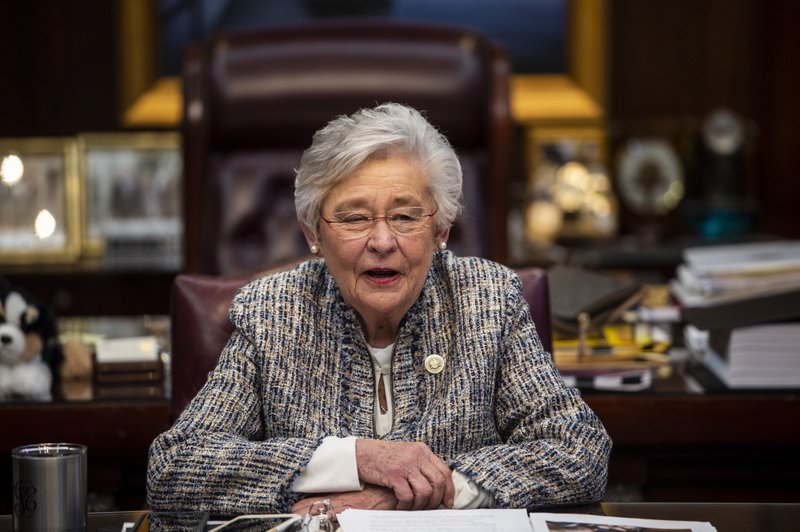
Alabama Gov. Kay Ivey on Friday signed employment protections for workers who claim a religious or health reason for not getting vaccinated against COVID-19. The Republican governor signed the legislation a day after it was approved by the Alabama Legislature as GOP-led states turn to lawsuits and legislation to fight the federal vaccine requirements they call an infringement on personal liberties. Ivey also signed into law a separate bill requiring parental consent for minors to get vaccinated for COVID-19. The new law says state employers can’t fire workers for being unvaccinated against COVID-19 if the employee returns a new standardized state form to claim a religious, medical exemption. “From the moment the White House rolled out their scare tactic plans to try to force this vaccine on Americans, I called it for what it is: an un-American, outrageous overreach. Alabamians – including those like myself who are pro-vaccine – are adamantly against this weaponization of the federal government, which is why we simply must fight this any way we know how,” Ivey said in a statement. President Joe Biden in September announced contractors who do business with the federal government must have workforces vaccinated — with no option to test out. The Alabama law will also affect companies, such as medical providers, who wanted to independently place vaccination requirements on workers. The bill drew opposition from the Business Council of Alabama, which said it would put federal contractors in a no-win situation. Democrats said Republicans were putting both jobs and public health in jeopardy for the sake of scoring political points. “After supporting a bill like that, I don’t think they can say they are pro-business or pro-growth. Hopefully, the business community will remember that House Democrats support their interests,” House Minority Leader Anthony Daniels of Huntsville said. Under the legislation, employees would check a box in a new standardized form for the reason they couldn’t get vaccinated — such as a religion, certain qualifying medical conditions, or a health provider’s signed recommendation. There would be no requirement to provide proof of the reason. An employee denied an exemption can appeal to the state Department of Labor. The new process and job protections will end automatically on May 1, 2023, unless extended by lawmakers. The legislation is a carve-out from existing law that allows companies to fire workers at will and specifies that it wouldn’t alter the ability of an employer to terminate an employee for reasons other than the employee’s COVID-19 vaccination status. Republicans argued that the federal government already allows exemptions for medical and religious reasons, and lawmakers are trying to provide an easy way for employees to claim those exemptions. “They’re fearful of losing jobs they’ve had for 20 years, very good jobs that they had with federal contractors,” Republican Rep. Mike Jones of Andalusia said. Some Democrats said the GOP proposal would create a wide-open portal for people to fraudulently claim an exemption without truly having a valid reason. “You know and I know, everybody, even atheists, is going to come up and say it’s because of their religious beliefs,” Democratic Rep. Pebblin Warren of Tuskegee said. Alabama has had at least 15,629 COVID-19 related deaths and has the second-highest per capita death rate from COVID-19 among states, according to researchers from Johns Hopkins University. Republished with the permission of the Associated Press.
Lawmakers give final OK to congressional, legislative maps
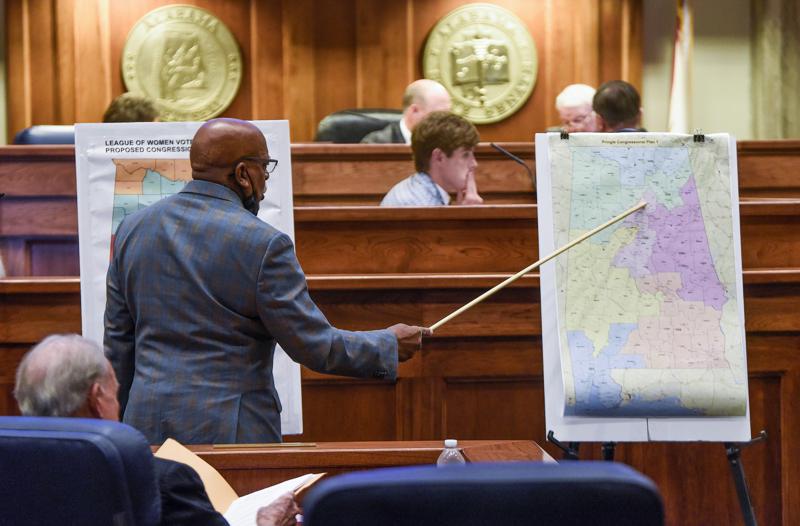
The Alabama Legislature gave final approval Wednesday to new congressional, legislative, and school board districts for the state to use over the next decade, but both Republicans and Democrats expect the plans to be litigated in court. The plans are expected to maintain Republicans’ six-to-one edge in the congressional delegation and lopsided majority at the Alabama Statehouse. Democrats unsuccessfully proposed the creation of a swing district centered in Birmingham that would be competitive for the two political parties. The maps now go to Alabama Gov. Kay Ivey for her signature. If approved, they will be used in the 2022 elections. This is the first time lawmakers do not face the burden of preclearance by the Justice Department — after the U.S. Supreme Court removed the requirement — but lawmakers expect the plans will be litigated in court challenges. House Speaker Mac McCutcheon said there are always lawsuits on redistricting plans. But he said the plans are a fair adjustment of district lines to account for population changes. “We tried to follow everything to the closest letter of the law that we could so we might have a map that would stand … a court hearing,” the Republican speaker said. Democrats opposed the GOP-drawn lines, arguing they are gerrymandered by improperly dividing counties and communities of interest. They also said the maps do not reflect the state’s increased political and racial diversity. The plan is expected to maintain the current partisan balance in the seven-member congressional delegation with six Republicans elected from heavily white districts and one Democrat elected from the only majority-white district. Alabama has a population that is about 26% Black. Republicans voted down Democratic efforts to create one swing congressional district centered in Birmingham that would be competitive between Republicans and Democrats. The swing district would have a population that is 40% Black. Sen. Rodger Smitherman of Birmingham said the plan would avoid splitting counties and accurately reflects the politics of the area which has substantial numbers of both Republican and Democratic voters. “That district itself could go either way that the citizens so desire, and that’s reflective of that area,” Smitherman said. Sen. Jim McClendon, the co-chairman of the redistricting committee, disputed that the congressional districts could be drawn that way without putting the state’s only African American representative at risk of losing an election. There is already a pending lawsuit challenging the state’s current congressional districts, saying they are “racially gerrymandered” and limit Black voters’ influence in all but one congressional district. Challenges are also expected to the legislative maps. The GOP-controlled Legislature in 2017 had to redraw legislative maps under court order to fix racial gerrymandering in 12 districts. The ruling came after Black lawmakers filed a lawsuit challenging the maps as “stacking and packing” Black voters into designated districts to make neighboring districts whiter and more likely to elect conservative Republicans. House Minority Leader Anthony Daniels said this year that there appeared to be “a lot of packing” of white voters in Republican districts. “There was more packing on the majority side — 70-80% white districts in areas that I know should be more diverse,” Daniels said. McCutcheon said in drawing the lines this year that they first drew them without looking at race and based on the existing map and population changes. He said they later calculated the racial composition of districts. “I’m ready to defend these maps in court and if the past is any indication of what’s to come, I probably will be doing so,” McClendon said. Republished with the permission of the Associated Press.
House Republicans advance vaccine exemptions
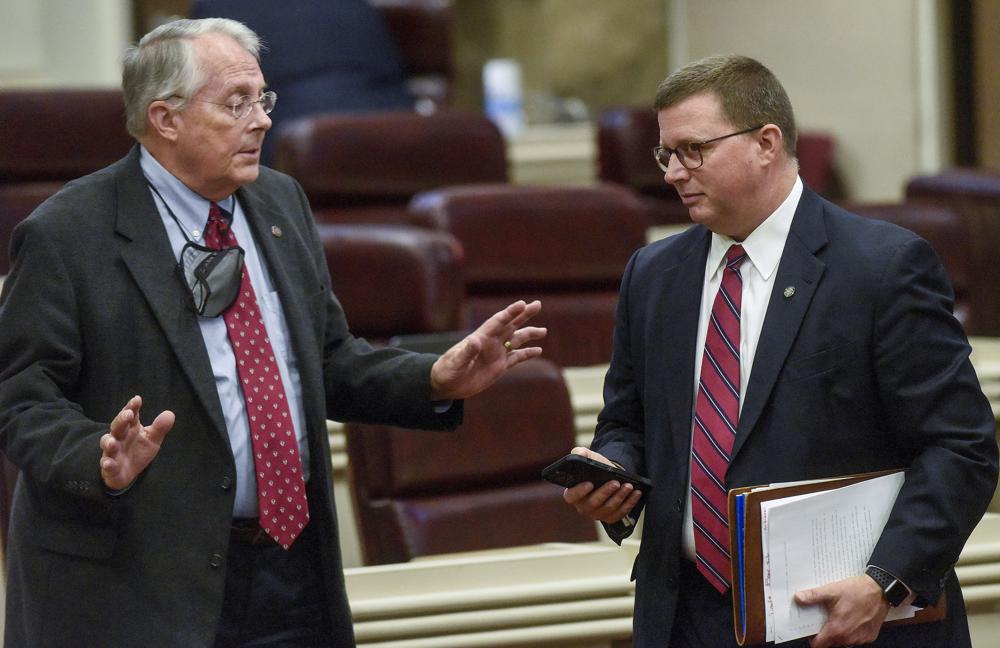
The Alabama House of Representatives on Thursday advanced legislation to prevent companies from firing workers who claim a religious or medical exemption to COVID-19 vaccination mandates — with lawmakers taking opposing views on whether the measure would be a “job killer” or a job protection measure. Republicans said they were responding to an outcry from constituents afraid of losing their jobs because they haven’t gotten vaccinated. Democrats said the bill would jeopardize both federal contractors in the state and public health for the sake of scoring political points. The House of Representatives voted 67-23 for the bill in a vote that fell along party lines. It now returns to the Alabama Senate where lawmakers will decide whether to accept House changes or send the bill to conference committee. The Republican-sponsored bill says employers must exempt employees from a COVID-19 vaccination requirement if the worker returns a new standardized state form to claim a religious or medical exemption. Employees would check a box for the reason they couldn’t get vaccinated — such as a religious reason, certain qualifying medical conditions, or a health providers’ signed recommendation. There would be no other requirement to prove the exemption. “They’re fearful of losing jobs they’ve had for 20 years, very good jobs that they had with federal contractors,” said Republican Rep. Mike Jones of Andalusia, adding that some people are “truly afraid of the vaccine.” Jones said they were trying to find a way to protect employees who are afraid of getting vaccinated without hurting federal contractors who face a federal mandate to get their workforces vaccinated. But House Minority Leader Anthony Daniels argued the bill would do just that by interfering with a company’s ability to comply with the federal mandate. “I’m angry as hell right now, because this is a job killer,” said Daniels, saying that federal contractors provide many of the jobs in, and around, his Huntsville district. “You cannot say you are pro-business in introducing this piece of legislation.” Other Democrats said the GOP proposal would create a wide-open portal for people to claim an exemption to the vaccination mandate without truly having a valid reason. “You know and I know, everybody, even atheists everybody is going to come up and say it’s because of their religious beliefs,” Democratic Rep. Pebblin Warren said. The bill gives several medical conditions, such as taking a blood thinner, which would exempt an employee from the vaccination mandate. There would be no requirement to provide proof of the condition or religious belief. An employee denied an exemption could appeal to the state Department of Labor. The proposal is a carve-out from existing law which allows companies to fire workers at will. The bill specifies that it wouldn’t alter the ability of an employer to terminate an employee for reasons other than the employee’s COVID-19 vaccination status. The legislation comes as Republican leaders in many states try to find ways to resist the federal vaccine mandate they call an infringement on personal liberties. The bill has drawn opposition from a business group, which said it would put federal contractors in a no-win situation. Alabama has seen at least 15,629 COVID-19 related deaths, and has the second-highest per capita death rate from COVID-19 among states, according to researchers from Johns Hopkins University. Republished with the permission of the Associated Press.
Alabama lawmakers begin special session on redistricting

The Alabama Legislature convened Thursday for a special session on drawing the state’s legislative, school board, and congressional districts, although many expect the issue will ultimately be headed for federal court. The Legislature is expected to maintain a firm Republican majority under the proposed maps, but some Democrats have raised concerns that the proposed lines don’t reflect a state that has grown more diverse. “We’ve done our best. It’s a balancing act on getting the votes and complying with the courts,” said Republican Sen. Jim McClendon, the co-chair of the Joint Legislative Reapportionment Committee. There is already an existing lawsuit arguing that the state, which has a population that is about 26% Black, should have a second congressional district with a significant African-American population. The seven-member delegation has for decades consisted of a single African American, elected from the only district with a majority Black population. The district is now represented by Rep. Terri Sewell. The GOP-controlled Legislature in 2017 had to redraw legislative maps under court order to fix racial gerrymandering in 12 districts. The ruling came after Black lawmakers filed a lawsuit challenging the maps as “stacking and packing” Black voters into designated districts to make neighboring districts whiter and more likely to elect conservative Republicans. House Minority Leader Anthony Daniels said there are concerns about the proposed districts in the House of Representatives, noting that almost all Republican districts have no less than 60% of one race. “Is that not packing?” Daniels asked. Daniels said that if the goal is to have a community where “no one really sees race and color long term,” then “we have to make sure that our representatives have constituencies that reflect what the future of this state and this country is going to be.” This will be the first full redistricting process that doesn’t require pre-clearance from the Department of Justice, a condition that was instituted under the Voting Rights Act in 1965 in mostly Southern states with a history of voting rights violations. The U.S. Supreme Court effectively ended the requirement in 2013 when it ruled the federal government was using an outdated method to decide which states were subject to it. McClendon said that, even without the requirement, lawmakers were careful to comply with the Voting Rights Act and related court rulings. House Speaker Mac McCutcheon acknowledged that, as in past years, there will probably be some court challenges to the plan. “We’re going to allow the process to work. We’re listening to everyone,” he said.
Speaker Mac McCutcheon won’t seek reelection in 2022

Alabama House Speaker Mac McCutcheon said Monday he will not seek reelection next year. McCutcheon, 68, said in a statement that he is stepping away from politics to spend time with his family and to do some traveling with his wife during retirement. “It’s been an honor and a privilege to represent the people of District 25 in the House and the citizens of the State of Alabama as speaker, but after four terms it’s time to go home,” McCutcheon said. McCutcheon, a Republican from Monrovia, is a former police officer and crisis negotiator. He was first elected to the House in 2006. He served as the chairman of the influential House Rules Committee, which decides what bills come up for debate, from 2012 to 2016. McCutcheon came to the helm of the House at a time that the state was being battered by scandals. McCutcheon was selected as speaker in 2016 to replace former House Speaker Mike Hubbard, who was removed from office after being convicted on ethics charges. McCutcheon, known for his affable demeanor, had promised to depart from the authoritative style of his predecessor. “The days of the imperial speakership are over,” McCutcheon said at the time. House Majority Leader Nathaniel Ledbetter, R-Rainsville, said McCutcheon had restored stability to the speaker’s office. “Combining a firm hand with a kind heart, he worked to ensure that the voices of all members — regardless of rank or party affiliation — were given the opportunity to be heard,” Ledbetter said. Alabama Gov. Kay Ivey said people should be proud of McCutcheon. “Not only has he worked hard for Alabama, Mac is simply a good guy,” Ivey said. McCutcheon’s tenure still saw its own controversy. In 2017, the House of Representatives began impeachment hearings against then-Gov. Robert Bentley. Bentley later resigned. McCutcheon said he had quietly warned Bentley in a “friend-to-friend” meeting that there were enough votes in the House to impeach him. With McCutcheon as speaker the GOP-dominated House of Representatives continued to push a socially conservative and pro-business agenda. Lawmakers in 2019 passed legislation what was then the most stringent abortion legislation in the nation, making performing an abortion a felony including in cases of rape and incest. The law was blocked by a federal judge. However, House Minority Leader Anthony Daniels, D-Huntsville, who serves in the same local delegation as McCutcheon, said he thought the last legislative session was one of the most successful during his time in Montgomery. McCutcheon said he is proudest of working with House members. “I have nothing but respect and admiration for every member of the House,” McCutcheon said. “We’ve had our political disagreements, but it was never personal, and I will treasure my days in the House for the rest of my life,” McCutcheon said. A new speaker will be selected in the organizational session in 2023.
State Reps. Juandalynn Givan and Thomas “Action” Jackson speak against a resolution supporting Israel

State Reps. Juandalynn Givan (D-Birmingham) and Thomas “Action” Jackson (D-Thomasville) spoke against a resolution “expressing solidarity with Israel in its defense against terrorism in the Gaza Strip” during the final day of the legislative session reported Yellowhammer News. Israel has recently been dealing with the worst violence the area has seen in decades. Many, including Gov. Kay Ivey, have recently made public statements in support of Israel. Alabama stands with Israel! 🇮🇱 — Governor Kay Ivey (@GovernorKayIvey) May 12, 2021 SJR 138 was introduced and passed by a voice vote in the Senate earlier the same day. Givan spoke first on the resolution, which was being carried in the House by Rep. Terri Collins (R-Decatur). “What in the slam-chiggity is this?” Givan asked. “I think there are a lot of Alabamians who want to commit to solidarity with Israel,” Collins said. “[Y]ou’re talking about in the Republican Party, because I know ain’t nobody from not one of my neighborhoods told you that,” Givan argued. “I know ain’t nobody — and I’m using Ebonics right now — ain’t nobody told you that in my neighborhoods. … Now, if all y’all ‘Dumplicans’ want to do it, that’s up to y’all.” “I have heard much support of Israel, regularly, all around the state,” Collins responded. “Well, I hear a lot of support for Africa and South Africa, but I don’t see you bringing not one resolution — nor would you be willing to support one,” Givan said. She continued, stating that the resolution was an example of the type of “agenda” that causes “a lot of grief and a lot of strife and heartache here in this chamber.” “I don’t want to be a part of this,” and that she wanted to oppose the resolution with “five or six votes” next to her name. “Because I am embarrassed tonight to even stand in this chamber, and I’m hoping that the media is listening to me about the foolishness and foolery that goes on in this chamber. And the sensitive things that you people — and yes, I am saying you people — do in the name of whatever agenda that you are trying to push.” Jackson spoke next. He began by saying, “I was hoping that the lady (Collins) would include the opposite side, that Israel would start restraining itself.” He subsequently argued that Hamas and the Palestinian people were justified in their stance. “Now, Israel is not the Israel that the Bible was talking about,” said Jackson. “That little piece of land over there — these people do so much damage to so many people. … And the United States always funded them. Isn’t that wrong?” Jackson claimed Israel is “just as bad” as Hamas. Hamas is classified by the U.S. State Department as a foreign terrorist organization. Jackson then commented, “Ask the question, ‘Why is Hamas doing what they’re doing?’ But you’re not asking that question. They’ve gotten in a situation that we’ve been in for over these 400 years in this nation. So, when do people stand and be themselves? When do they say, ‘Enough is enough.’? And the fight continues.” “Israel is just as guilty as some of this stuff,” Jackson said. He also said Israel was “taking advantage” of Gaza residents. He called for peace on both sides of the conflict. House Minority Leader Anthony Daniels (D-Huntsville) stated, “I felt that the resolution (SJR 138) was a positive resolution, and so I just want to make sure that that is clear, regardless of the messages that individuals received. Because I think we all are in support of that resolution. And I thought it was a positive resolution. I don’t want anybody to get the wrong idea about Democrats being anti-Semitic. That’s certainly not the case.” At 10 pm, SJR 138 was been called back onto the floor, and Republicans filed cloture in order to force a vote on the measure. The resolution passed 89-0, with 10 Democrats abstaining. SJR138 states: WHEREAS, Hamas was founded with the stated goal of destroying the State of Israel; and WHEREAS, Hamas has been designated by the United States as a Foreign Terrorist Organization; and WHEREAS, Hamas has launched thousands of rockets and mortars against Israeli population centers, since Israelwithdrew its civilian population and its military from Gaza in 2005; and WHEREAS, Palestinian terrorists of the Islamic Jihad and Hamas have launched over 1800 rocket and mortars against Israeli civilian areas in 2021; and WHEREAS, Hamas has increased the range and payload of its rockets, reportedly with support from Iran and others, putting hundreds of thousands of Israelis in danger of rocket attacks from Gaza; and WHEREAS, Hamas locates elements of its terrorist infrastructure in civilian population centers, thus usinginnocent civilians as human shields; and WHEREAS, the democratic, Jewish State of Israel is a key ally and a strategic partner of the United States andfriend and partner of the State of Alabama; and WHEREAS, the State of Alabama plays an important role in the production of the Iron Dome missile defense systemwhich has saved countless lives against rocket attacks by Hamas onto population centers in Israel; and WHEREAS, Israel, a fellow democracy, has an inherent right to self-defense in the face of terrorist attacks; now, therefore, BE IT RESOLVED BY THE LEGISLATURE OF ALABAMA, BOTH HOUSES THEREOF CONCURRING, That the State of Alabama: (1) Expresses vigorous support and unwavering commitment to the welfare, security, and survival of the State of Israel as a Jewish and democratic state with secure borders, and recognizes its right to act in self-defense to protect its citizens against Hamas’s unceasing aggression. (2) Reiterates that Hamas must end the rocket and mortar attacks against Israel, recognize Israel’s right to exist, renounce violence, agree to abide by previous agreements between Israel and the Palestinians, and verifiably dismantle its terrorist infrastructure. (3) Encourages the Administration to work actively to support a durable and sustainable cease-fire in Gaza, as soon as possible, that prevents Hamas from retaining or rebuilding its terrorist infrastructure, including the capability to
Gambling bill dies as Alabama legislative session ends
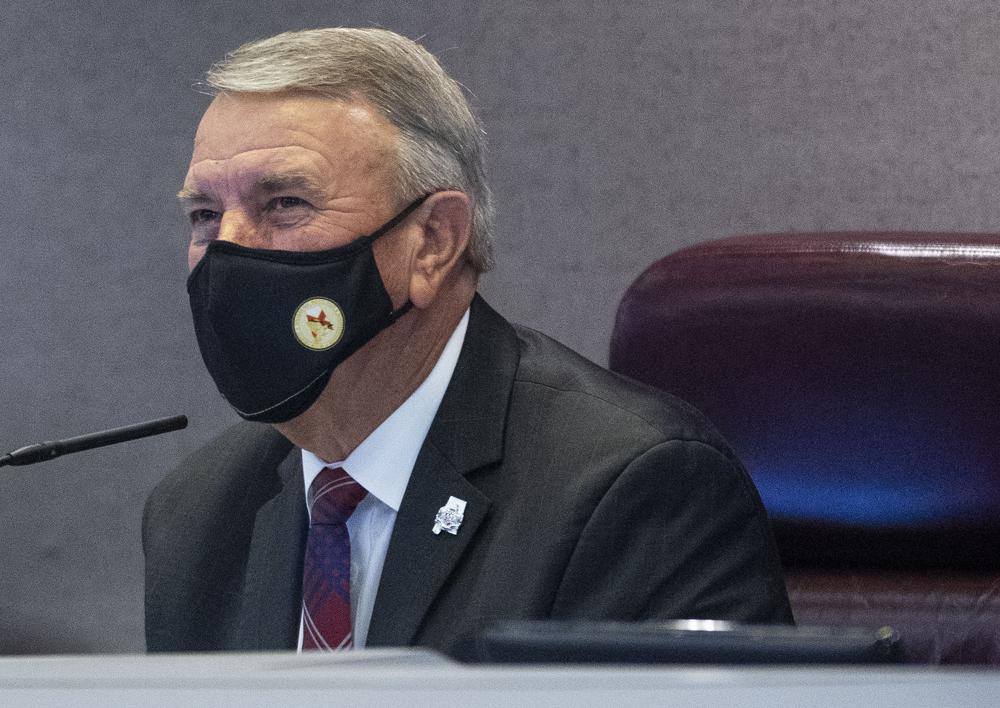
Alabama lawmakers ended the 2021 legislative session without a vote on a gambling bill, and Gov. Kay Ivey indicated she will only call a special session on the issue if lawmakers can reach an agreement — something they have been unable to do for decades. The session wound down Monday night without a House vote on the Senate-passed lottery and casino bill. House Speaker Mac McCutcheon said House leaders opted not to bring the bill up for debate on the busy final legislative day after negotiations fell apart earlier this month. “I’m quite disappointed,” said Republican Sen. Jim McClendon, who sponsored the bill. He said the Senate worked hard to get a compromise, only to see the bill fall apart in the House. “It was a lot of work, but so much for that this session,” McClendon said. Alabamians last voted on the issue of gambling in 1999 when voters rejected then-Gov. Don Siegelman’s proposed lottery to fund education. Over the next two decades, lawmakers made multiple attempts to pass a gambling bill but the efforts failed amid battles and turf wars over casino gambling. A spokeswoman for Ivey said the governor has no plans to call a special session and would only consider it if lawmakers reached an agreement. “As she has said, we would need a plan and an agreement on that plan for her to consider that,” Ivey spokeswoman Gina Maiola said. Lawmakers hit sticking points on the number of casinos and language specifying how revenue would be used. The Senate bill would have allowed nine casinos — including sites owned by the Poarch Band of Creek Indians but other sites, that currently have electronic bingo games, had lobbied to be included, saying shutting their facilities down would cost jobs in poor counties. “You can’t just talk about a lottery without all of these other people getting into the discussion,” McCutcheon said. Democrats had sought language in the legislation that gambling revenue would be used for Medicaid expansion. “That has been our priority for the last 10 years,” House Minority Leather Anthony Daniels said. Democrats said there is a misperception across the state about who would benefit from Medicaid expansion, noting that most people who qualify would be the working poor and white. “Expanding Medicaid is to help small businesses that can’t afford to offer health insurance to their employees. It’s the working poor, the people working two or three jobs. Those are the people that will qualify,” Daniels said. Senate Majority Leader Clay Scofield said he believed Senate Republicans would oppose such language because of cost. “I think the Senate Republicans would have a problem with that,” Scofield said. McCutcheon said he did not know if there would be a special session on gambling. “It depends on whether we can get all the differences worked out,” he said. Alabama lawmakers will return to Montgomery for at least one special session in order to draw new congressional and legislative districts. McCutcheon said there is also the possibility of a special session on prison construction. Ivey has proposed to lease prisons, but the plan has hit setbacks with the withdrawal of some finance companies. Some lawmakers have suggested approving a bond issue to build the prisons so the state will own them. Republished with the permission of the Associated Press.
Gambling bill stalls in Alabama House as tempers flare
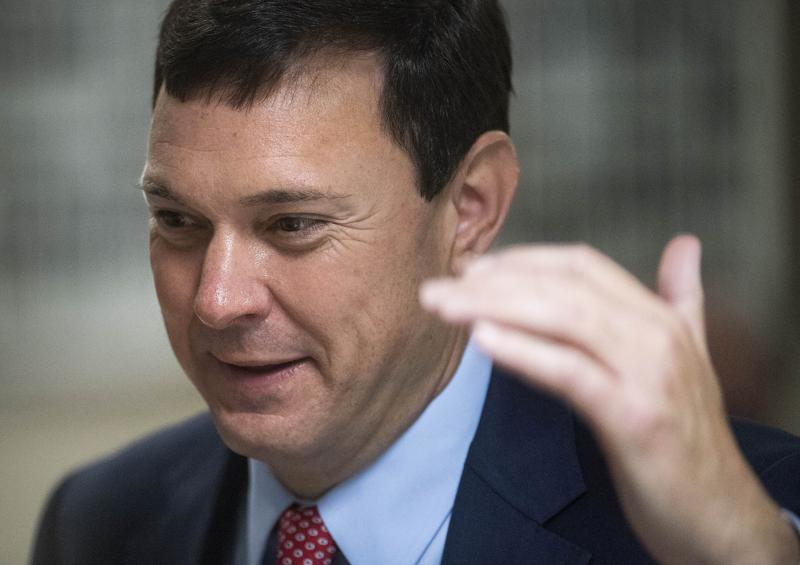
Lottery and casino legislation stalled in the Alabama House of Representatives on Thursday night after negotiations failed to muster enough support, leaving the outlook for the gambling bill doubtful with just a day remaining in the session. The demise of the legislation led to finger-pointing over who was responsible and an unsuccessful effort by Republicans to switch the bill for a GOP-backed lottery proposal. Republicans accused Democrats of making last-minute demands on the bill. Democrats criticized what they described as a bad-faith push by Republicans to change out the bill. House Speaker Mac McCutcheon said he believes the outlook for the bill is “doubtful” with only a day remaining in the 2021 session. “Tensions were high because people have been working so hard. Everybody was just really upset at the way things were. There was no effort to pull anything behind anybody’s back. We were trying to get a bill on the floor,” McCutcheon told reporters. Democrats criticized a push by Republicans to switch the gambling bill — after a day of negotiations — for a GOP-backed lottery bill. “If you don’t have integrity when you’re dealing with gaming, you need to give it up. And what I have seen in this room tonight, integrity is nowhere around,” Rep. Pebblin Warren, D-Tuskegee, said. The casino and lottery bill needed bipartisan support to win approval because of some conservative members’ opposition to gambling. Sticking points emerged over locations and requests from Democrats to sharpen vague language that proceeds could be used for Medicaid expansion, McCutcheon said. As the bill remained short of needed votes, Republicans pushed to bring a lottery bill to the floor instead and pass it without support from Democrats. The House Rules Committee brought a proposed calendar that included the bill and tried to set a quick vote, although that was later abandoned. House Minority Leader Anthony Daniels said Democrats weren’t involved in conversations about that bill. “We weren’t privy to those particular conversations on our side of the aisle. That was something that was quite disturbing. It was a surprise to us just like it was a surprise to most members in the chamber.” The move also angered some Republicans opposed to gambling. Rep. Rich Wingo, R-Tuscaloosa, said they were pushing a quick vote on the bill that “nobody has read.” McCutcheon said lawmakers were trying to be responsive to constituents’ desire to vote on a lottery bill. Alabama is one of five states without a lottery. Alabamians last voted on a state lottery in 1999 when voters rejected a lottery proposed by then-Gov. Don Siegelman. Republican Rep. Chris Blackshear of Phenix City, who handled the Senate-passed bill in the Alabama House, said Alabamians want to vote on a lottery, but said putting together a bill has proven difficult. “If you’ve ever watched one of those football quarterback contests when they’re having to throw and the targets is the back of a four-wheeler, that’s what we’re doing right now. By the time we get there, the target moves,” Blackshear said Thursday morning before the bill fell apart. The original legislation, which would have to be approved by both lawmakers and state voters, would establish a state lottery to fund college scholarships and nine casinos locations that would be located primarily at existing state dog tracks and sites owned by the Poarch Band of Creek Indians. That bill faced opposition from a mix of Republicans opposed to legalized gambling and lawmakers arguing the bill picks winners and losers by naming casino locations. Some opponents argued it is unfair to exclude existing electronic bingo locations in Greene and Lowndes counties operating under current constitutional amendments. The final day of the legislative session is May 17. “It’s going to be difficult to get it passed now,” McCutcheon said of the gambling bill. Republished with the permission of the Associated Press.


